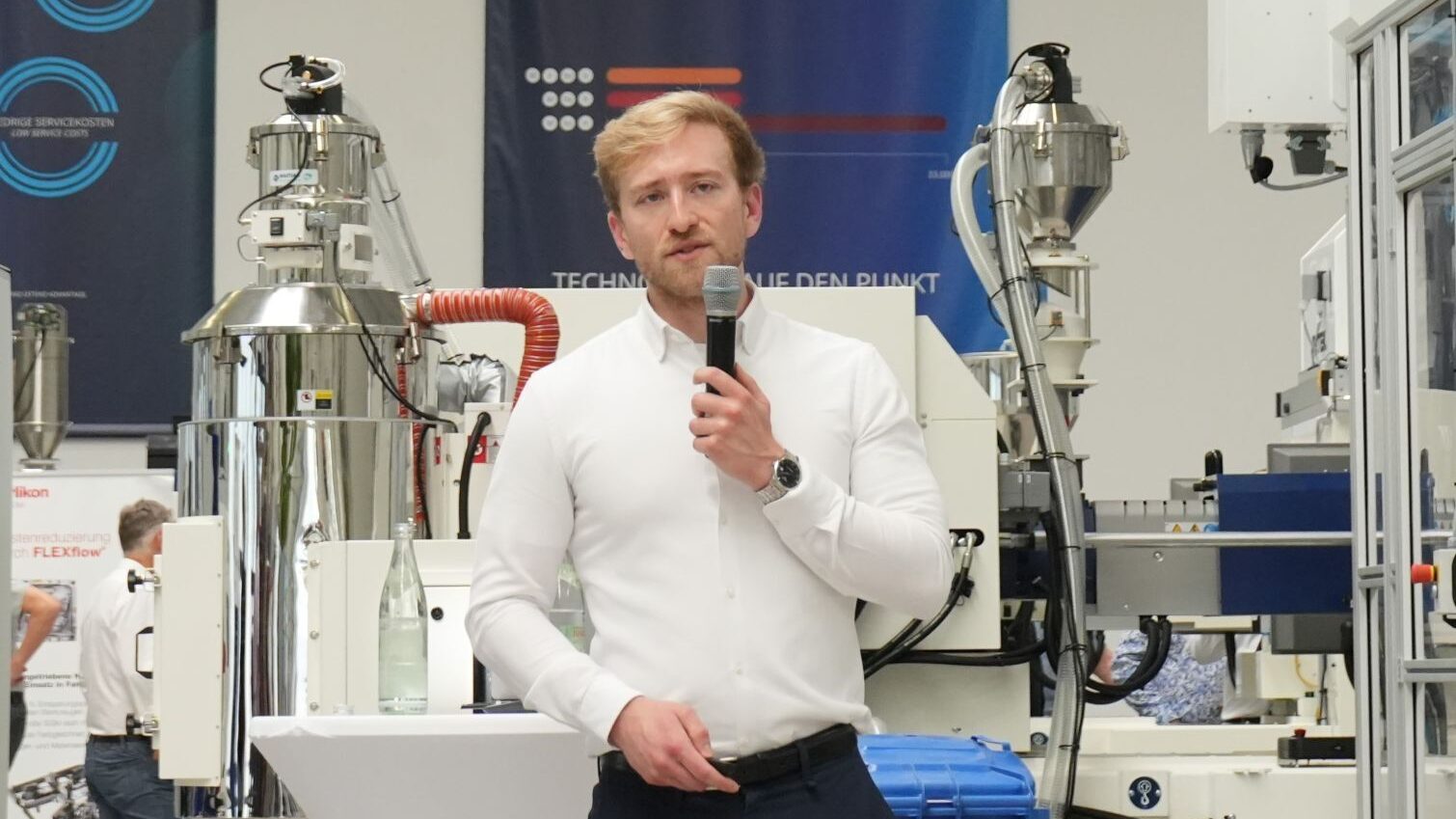
Support from virtual development over setup to production
At the Haitian International Open House 2024, held from June 25-27 in Ebermannsdorf, Bavaria, I had the exciting opportunity to present as part of the event’s “alongside” program. The Open House, which saw a record attendance of around 1,000 visitors, has become a premier showcase for Haitian’s full product lineup and cutting-edge innovations, including the introduction of the fifth generation of their injection molding machines. Amidst the excitement surrounding these new technologies, I contributed to the conversation by focusing on another rapidly evolving field—AI in injection molding.
My presentation was centered on the potential applications of AI throughout the injection molding value chain, an area of increasing interest as manufacturers look for ways to optimize their processes and stay competitive. I outlined three core use cases where AI can make a significant impact:
1. Iterative Sampling for Process and Geometry Optimization in Simulation: Traditionally, mold iterations are time-consuming and costly. My presentation demonstrated how AI-driven simulations, leveraging iterative sampling, can significantly reduce the number of mold iterations needed while improving process quality. By utilizing AI to predict the best parameters for both process and geometry, manufacturers can shorten development cycles, reduce waste, and save on material and time costs. This not only leads to faster time-to-market but also enables companies to meet higher quality standards with less trial-and-error effort.
2. AI-based Injection Molding Process Setup: Setting up an injection molding process is often complex and depends heavily on operator experience. In my talk, I highlighted how AI can help streamline this process by analyzing both simulation data and real process data. The AI system intelligently adjusts settings to optimize performance, reducing human error and increasing the consistency of the final product. This intelligent, data-driven approach could be particularly beneficial for companies producing high-precision parts or operating in industries where process consistency is critical, such as automotive or medical device manufacturing. The integration of AI into process setup also reduces the learning curve for newer operators, allowing them to achieve expert-level results more quickly.
3. Automated Anomaly Detection for Process Monitoring During Series Production: The third area I focused on was the application of AI for real-time process monitoring. AI can continuously monitor production parameters and detect any anomalies that might lead to defects or downtime. With automated anomaly detection, manufacturers can identify issues before they escalate, ensuring higher product quality and reducing costly interruptions. This capability is especially valuable in large-scale production environments where small process variations can have a significant impact on overall output. By automating this process, companies can shift from reactive troubleshooting to proactive process management, driving efficiency and minimizing scrap rates.
The audience response was overwhelmingly positive, with many attendees showing great interest in how these AI solutions could be applied to their specific production environments. The use of AI in injection molding is still a relatively new concept for many, but the potential benefits, from improved process efficiency to higher product quality, are becoming more apparent. Several participants expressed curiosity about how they could begin integrating AI into their operations and asked insightful questions about the practical implementation of these technologies.
Beyond my presentation, the Haitian Open House itself was an impressive display of technological advancements in the injection molding industry. Haitian introduced their fifth-generation machines, which include upgrades such as new control systems, intelligent machine functions, and energy-efficient drives. The integration of AI into these machines and peripherals further underscored the increasing role of smart technologies in manufacturing. It was inspiring to see how Haitian is positioning itself as not only a leader in traditional machine manufacturing but also as an innovator in the broader space of digital and AI-enhanced solutions.
I also had the chance to engage with various Haitian system partners and attendees from across Europe, all of whom are eager to explore the potential of AI and automation in their own facilities. The event provided a fantastic platform for networking and sharing ideas on how AI can help tackle some of the industry’s most pressing challenges, such as reducing cycle times, improving sustainability, and enhancing overall production efficiency.
In conclusion, my participation in Haitian International’s Open House 2024 was a rewarding experience, both in terms of presenting new ideas and learning from others in the industry. The interest in AI-driven solutions is clearly growing, and I’m excited to continue exploring how AI can help injection molding manufacturers stay ahead in an increasingly competitive market. I look forward to continuing these conversations and working on new collaborations as the role of AI in manufacturing continues to expand.